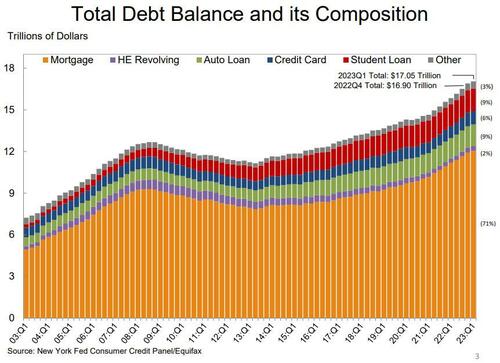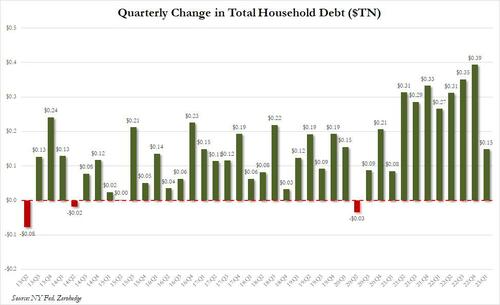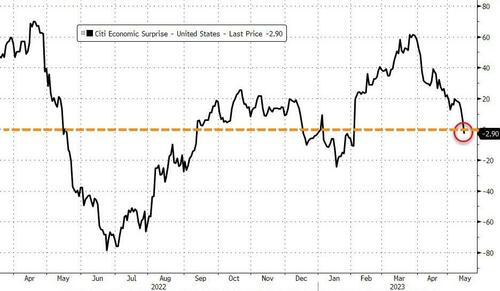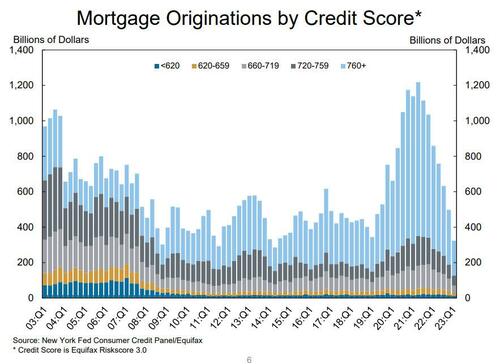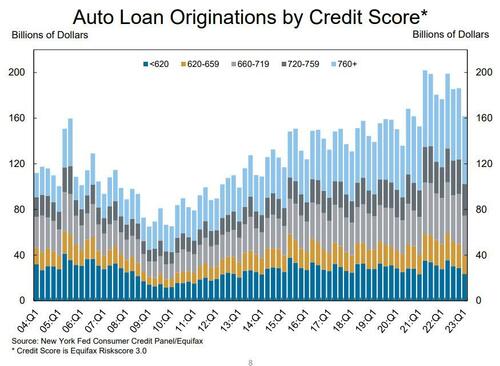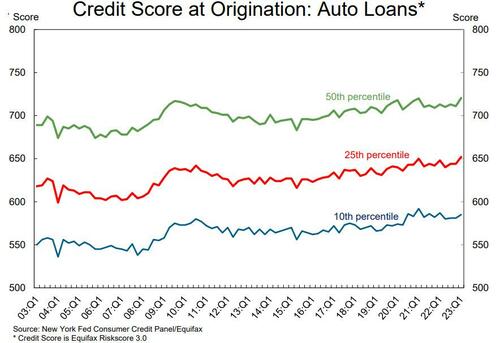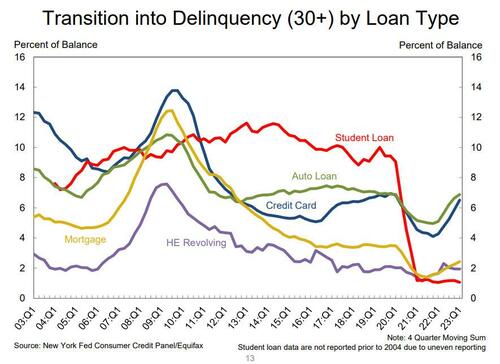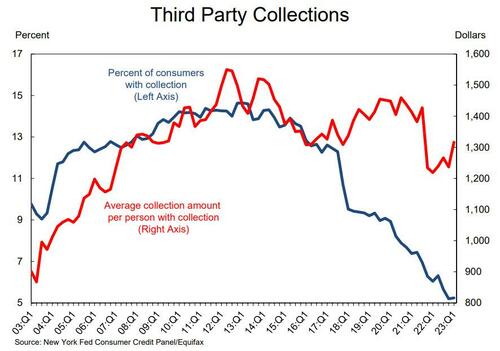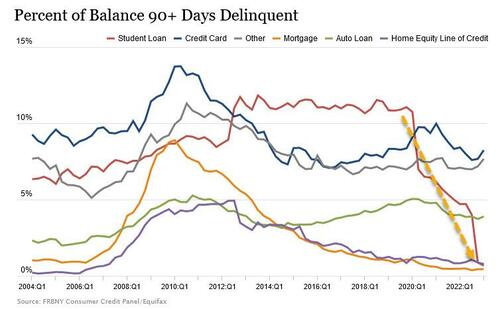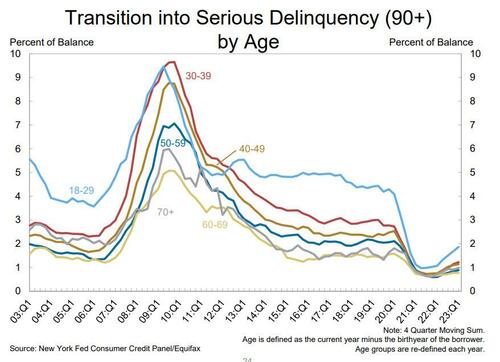

Soaring Rates Lead To Slowest Growth In Household Debt In Two Years As Mortgage Originations Plummet
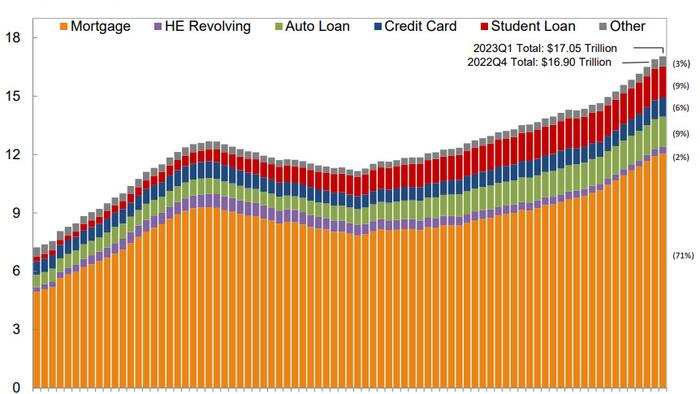
Total household debt rose by $148 billion, or 0.9%, to $17.05 trillion in the first quarter of 2023, according to the latest Quarterly Report on Household Debt and Credit.
This was the weakest quarterly debt increase in two years...
... hardly a good look for an economy that is entirely credit-driven, and may explain why the Citi US eco surprise index just dipped negative after a 4 month stretch in the green.
A detailed look at current debt balances by component:
While total debt hit another record high, the impact of soaring interest rates was felt with originations sharply lower across the board:
Also not surprising is that in a time of near record high rates, the share of current debt becoming delinquent increased for most debt types. The delinquency transition rate for credit cards and auto loans increased by 0.6 and 0.2%, respectively approaching or surpassing their pre-pandemic levels.
With countless debt-easing measures having been implemented in recent years (mostly post-covid) soon coming to an end, the mean-reversion here will be brutal.
The New York Fed also issued an accompanying Liberty Street Economics blog post taking a closer look at housing equity and mortgage refinancing as tools for funding consumer spending. Fourteen million mortgages were refinanced during the pandemic refinancing boom, during which $430 billion of home equity was extracted through cash-out refinances. About 64% of these mortgages were "rate refinances", resulting in an average payment reduction of $220 monthly for those borrowers.
"The mortgage refinancing boom is over, but its impact will be seen for decades to come," said Andrew Haughwout, Director of Household and Public Policy Research at the New York Fed. "As a result of significant equity drawdowns, mortgage borrowers reduced their annual payments by tens of billions of dollars, providing additional funding for spending or paydowns in other debt categories."
The Quarterly Report includes a summary of key takeaways and their supporting data points. Overarching trends from the Report's summary include:
Housing Debt
Student Loans
Unfortunately, the party is almost over as student loan payments are set to restart (by August 30th at the latest), around the time the Supreme Court will rule that Biden’s $20K forgiveness plan is unconstitutional. In short, the student loan delinquencies are about to come back with a historic vengeance.
Putting it all together: boomers who used the covid crisis to refi their homes into a record low mortgage rate and paid down their debt are sitting pretty; meanwhile millennials and Gen Zers who are stuck renting and whose student loans are about to kick in again...
... are facing a world of pain, especially those who are already not current on their auto loans.
More in the full presentation below.

